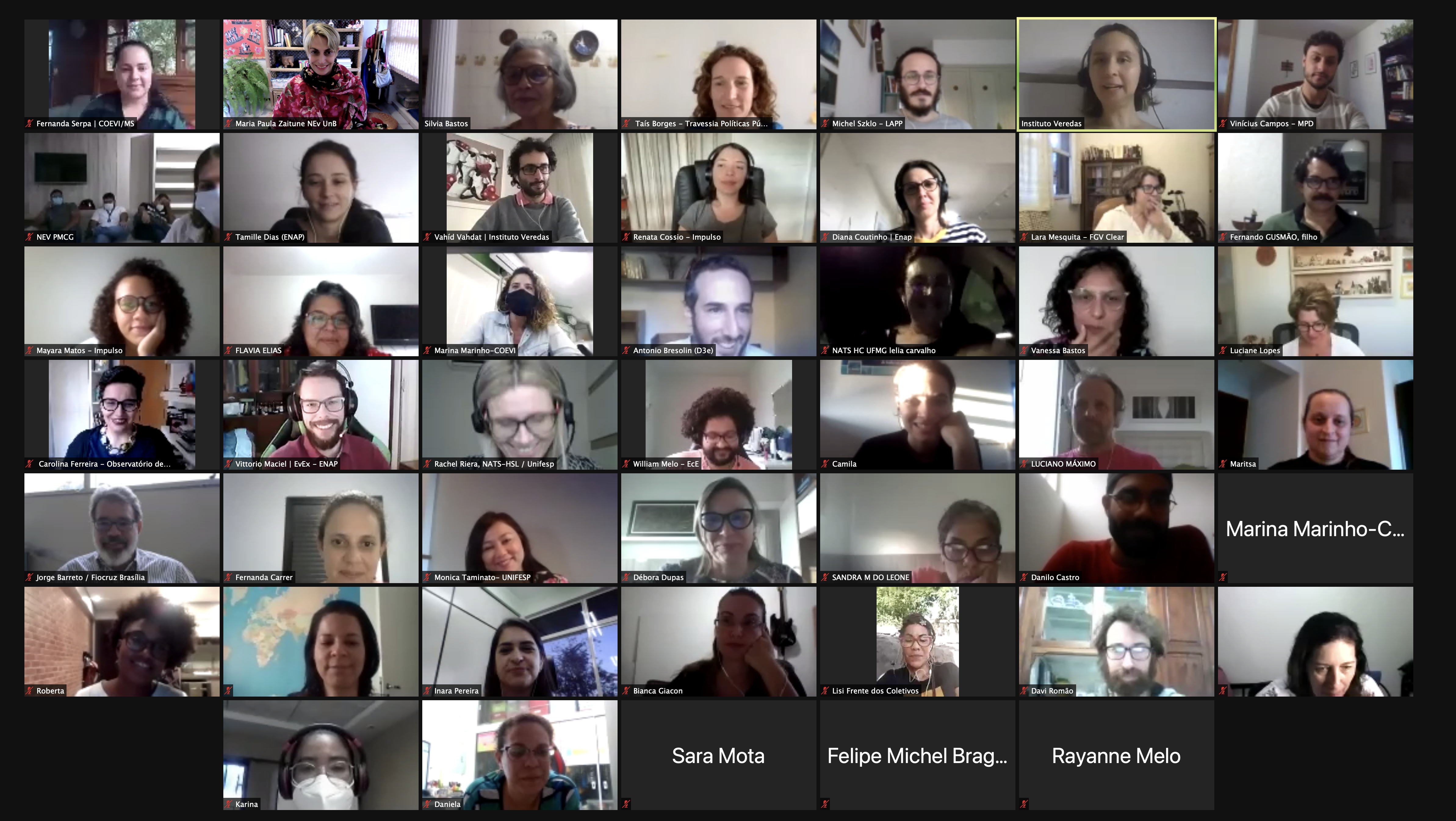
About 50 Brazilian institutions that work in the field of evidence-informed policymaking (EIP) have been engaged since April in the Brazilian Coalition of Evidence. Articulated by Instituto Veredas, Codeplan/DF, Evidência Express (Evex/Enap), Fiocruz Brasília, and EVIPNet Brasil, the Coalition aims to bring organizations together to build network for sharing EIP knowledge and practices. The ultimate aim of this coalition is to strengthen the culture of using evidence for public policies and social interventions in Brazil.
The initiative is pioneered in Brazil, inspired by other regional EIP networks from around the world, such as the Africa Evidence Network (AEN). A first mapping of organizations was circulated online in November 2020, receiving 64 responses from multi-sectoral organizations. The International Development Research Center (IDRC) provided seed funding for the Coalition to start its activities.
“Throughout 2021, we will hold webinars, calls for proposals, and create a platform for us to have a large public repository that will be a showcase evidence for public managers, civil society, and researchers,” explained Laura Boeira, executive director of Veredas. According to her, the overlapping of efforts and the difficulty in sharing KT tools can isolate organizations that could have greater impact if they worked together. “By sharing our knowledge, we will strengthen the culture of evidence”, she said.
During the first meeting in April 2021, the organizations were divided into subgroups to present their work and align understandings and challenges for the Network. Vahíd Shaikhzadeh Vahdat, director of projects and institutional articulation at Veredas, stated that “the validity and reliability of evidence depends on the methods used and how they are applied in different scenarios. We need to apply KT methods in a way that considers the specificities of each place and context”. The director also stated that the Coalition intends to foster a space for sharing experiences that allow for a common understanding of EIP methods and protocols.
Luciano Máximo, representative of the Evaluation and Results Learning Center for Brazil and Lusophone Africa (FGV Clear), believes that the Coalition’s next steps are making the best of this window of opportunity to “sensitize leaders in the government to use evidence in their decision-making”. The Coalition has been meeting monthly and is now defining working groups and its theory of change.
The Africa Evidence Network (AEN) has influenced the creation of this coalition greatly, having been in touch with the secretariat, attended their events, and learned from the work they do across Africa. As a result going forward, the Brazilian Coalition for Evidence will benefit from the support and partnership of the AEN. The Coalition looks forward to mentoring from and sharing lessons learned by the AEN secretariat for how to maintain an engaged and successful network of members.
While most of our work is in Portuguese, Veredas is happy to arrange translations and connect with organizations worldwide. Write to us contato@veredas.org.
About the author
Ms. Laura Boeira works in knowledge translation and evidence-informed policymaking (EIP) as the executive director of Veredas Institute in Brazil.
Acknowledgements
The author(s) is solely responsible for the content of this article, including all errors or omissions; acknowledgements do not imply endorsement of the content. The author is grateful to the Veredas team for support and guidance in the preparation and finalization of this article, as well as to Prof. Jorge Barreto at Fiocruz Brasília and all the partners from the Brazilian Coalition for Evidence.